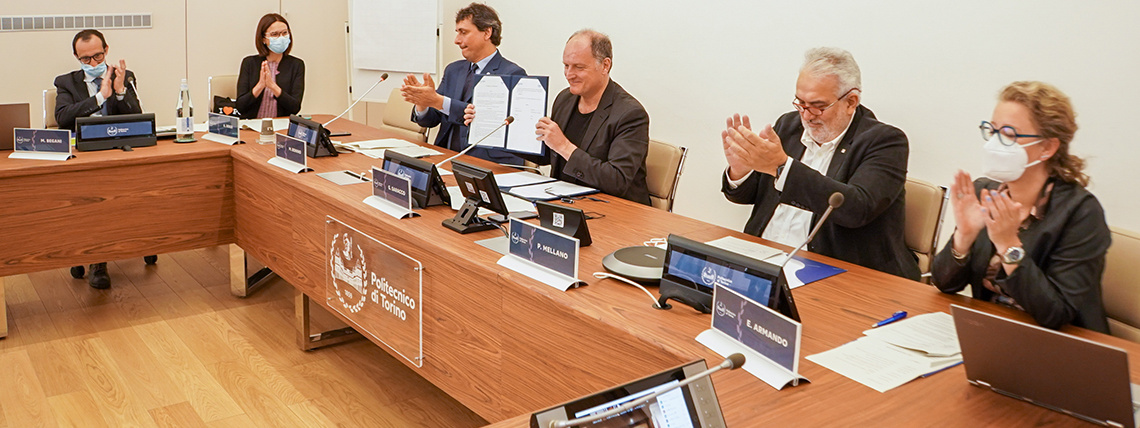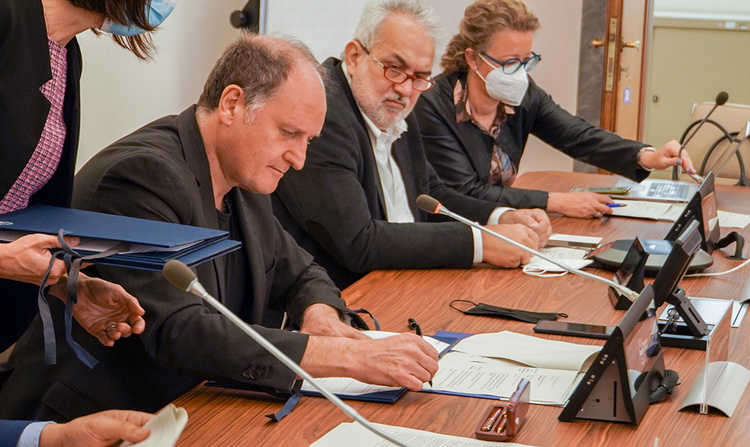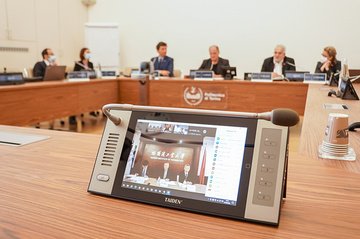The articles of the current edition are available on the new site.

Politecnico di Torino and Harbin Institute of Technology (one of the best STEM Universities in China) have taken an important step to extend their cooperation. The partnership dates back to 2007, when the Politecnico and HIT signed their first Memorandum of Understanding, and then started their first Double Degree program in Architecture in 2009.
As Chinese Higher Education Institutions – such as HIT – are increasingly relevant at the international level, and students worldwide are more and more interested to international careers, on April 27th, 2022 HIT President Prof. Han Jiecai and the Rector of the Politecnico Prof. Guido Saracco have signed a bilateral Statement of Cooperation setting the goals for the future cooperation between the two Institutions.

Prof. Han and Prof. Saracco have confirmed their interest to jointly develop and run a new Undergraduate program of Chinese-foreign cooperation in “Smart Building and Construction” at the HIT-International Campus in Harbin, which, as underlined by Guido Saracco: “will represent a significant progress in the cooperation, and enrich the experience of the involved students, scholars, and managers, and may as well foresee the involvement of external partners, such as companies and administrations”.
Prof. Saracco has also welcomed Prof. Han’s proposal to jointly start a new Sino-Italian Institute of Science and Technology in Hainan province, potentially extending the
 cooperation to the disciplines of the Engineering area. In his speech, Prof. Han said: “This cooperation will open a new chapter of Sino-Italian higher education, and will also promote the cooperation between our two universities to a higher level and in more fields”.
cooperation to the disciplines of the Engineering area. In his speech, Prof. Han said: “This cooperation will open a new chapter of Sino-Italian higher education, and will also promote the cooperation between our two universities to a higher level and in more fields”.
In parallel, the Rector of the Politecnico has recommended to further cultivate the academic links and exchanges: in the area of Architecture, the combination between the competencies of the Politecnico - which has recently been recognized as the best Italian University for its impact on the territory - and those of HIT’s, which has a high level of engagement into provincial and national architectural projects in China, can successfully meet the needs expressed by the institutions and the administrations of the two Countries in terms of urban and territorial design; in the area of Engineering, which is a strong background of both Institutions, the leaders agreed about the huge potential for the future cooperation.